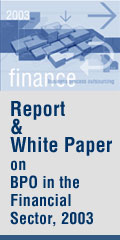|


|
Government's response to financial crisis will change the role of the public sector around the world
Governments' roles will change with the financial crisis. On one hand, governments around the world will expand and broaden their scope of responsibility just as they have done in the past. On the other hand, they will reinforce global interdependence and will see a renewed tendency toward devolution of central power from the center to the edge, according to a recently published point of view by Greg Pellegrino, Deloitte Touche Tohmatsu Global Public Sector Leader.
“Governments will likely respond to the crisis the way many of them have responded to past crises, expanding certain domestic commitments on a deficit basis,” said Pellegrino, who mentioned how the public sector is already extending its reach into the financial and manufacturing sectors, and into infrastructure projects tied to job creation.
The difference with past crises is that a more global government coordination will emerge from this crisis. “The spread of credit difficulties from nation to nation, and the concerted effort in some quarters to erect firebreaks further puts to bed the idea that any nation is an island,” added Pellegrino, who mentioned the recent efforts by the British and French governments to spur preemptive action by the International Monetary Fund (IMF) on behalf of threatened currencies and stocks in Eastern Europe.
Devolution from national governments to regional and local Governments and to key private-sector industries will be another effect from the financial crisis. What may appear at first glance to be just an expansion of the Government’s involvement, is in fact a redistribution of capital, putting resources on the ground in sectors and communities where they can be put to the greatest use. The challenge however will be whether or not big government can establish effective governance and accountability structures without creating a further drag on the sectors they seek to stabilize.
Common responses to deal with the crisis
According to Pellegrino, governments around the world are not all dealing with the crisis in the same way, although there are common responses based on innovation, reexamination of operational models, and thoughtfully directed support of key public- and private-sector institutions.
“Governments will have to implement rigorous cost reduction programs, increase their operational efficiency, improve their controls, and discover new ways to do more for less, which in turn will spark innovation, said Pellegrino. “Lean times demand new efficiency, while at the same instant, a public under pressure is demanding more from its government. In fact, many of the more significant government transformations have occurred during previous major economic downturns.”
>>> GO TO SECOND PAGE
Government measures should stabilize global banking markets
Indian Government announces measures for stimulating the economy
RBI again slashes repo rates to provide growth stimulus
IMF Welcomes Comprehensive European Response to Financial Crisis
IMF sees heightened risks to global financial stability
Indian Government sets up group to assess liquidity requirements
Subprime Crisis: A Special
CLICK FOR SPECIAL SECTION ON GLOBAL FINANCIAL CRISIS
CLICK FOR MORE FEATURES & STORIES

|
|
|



